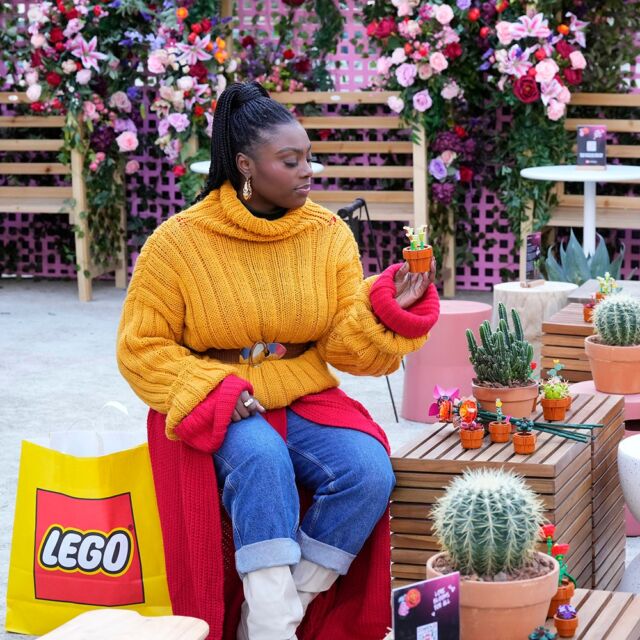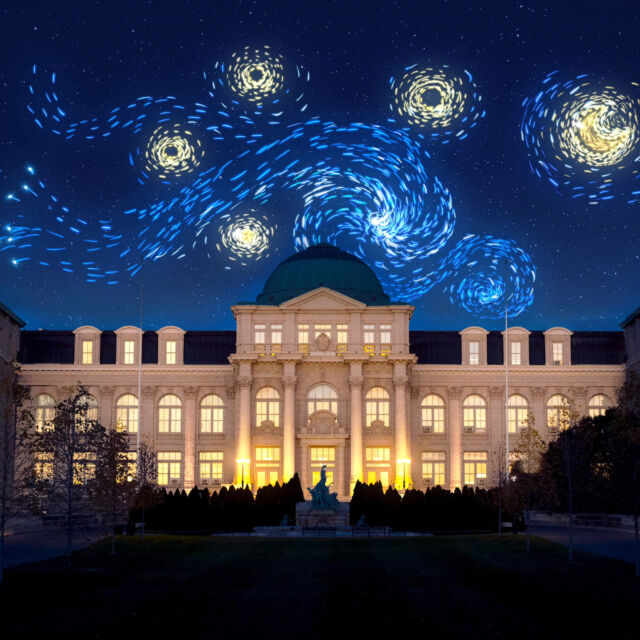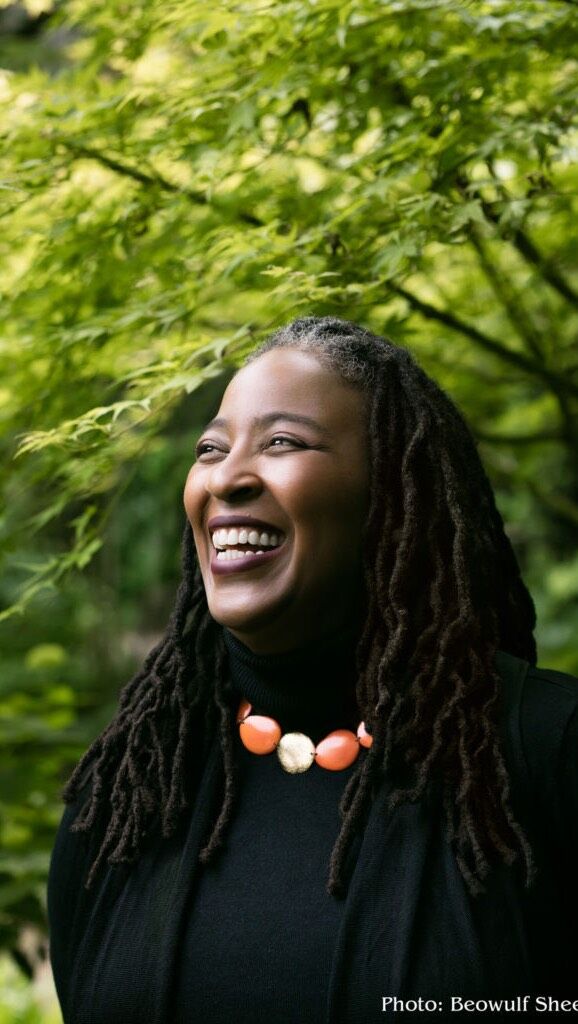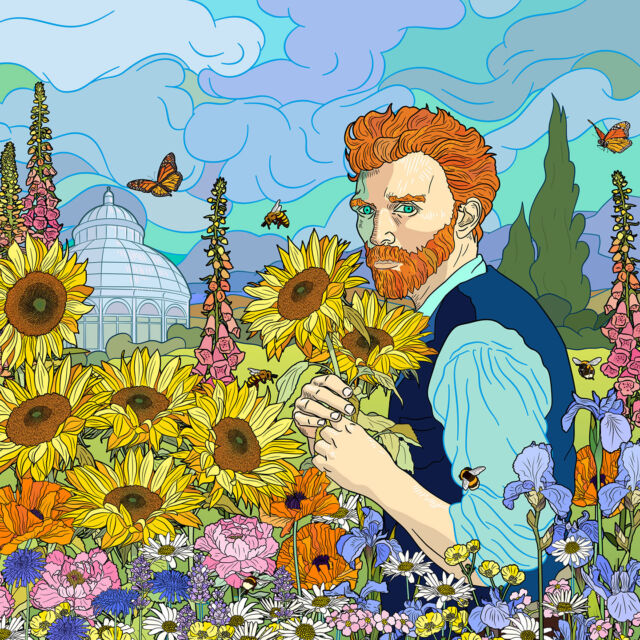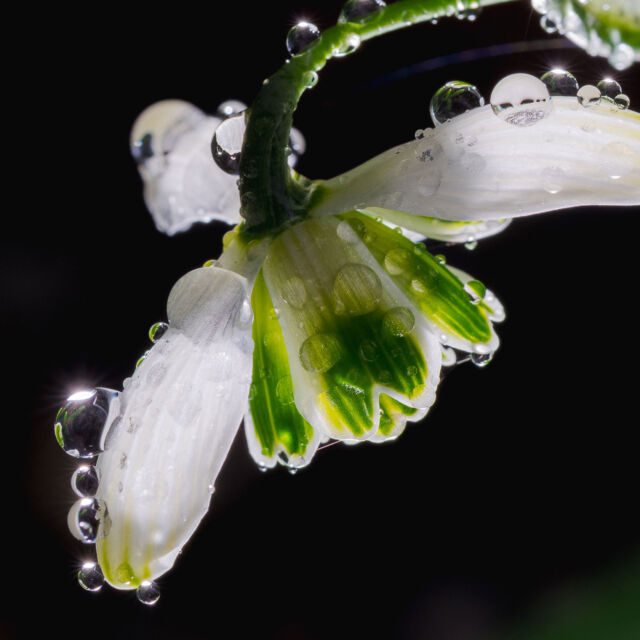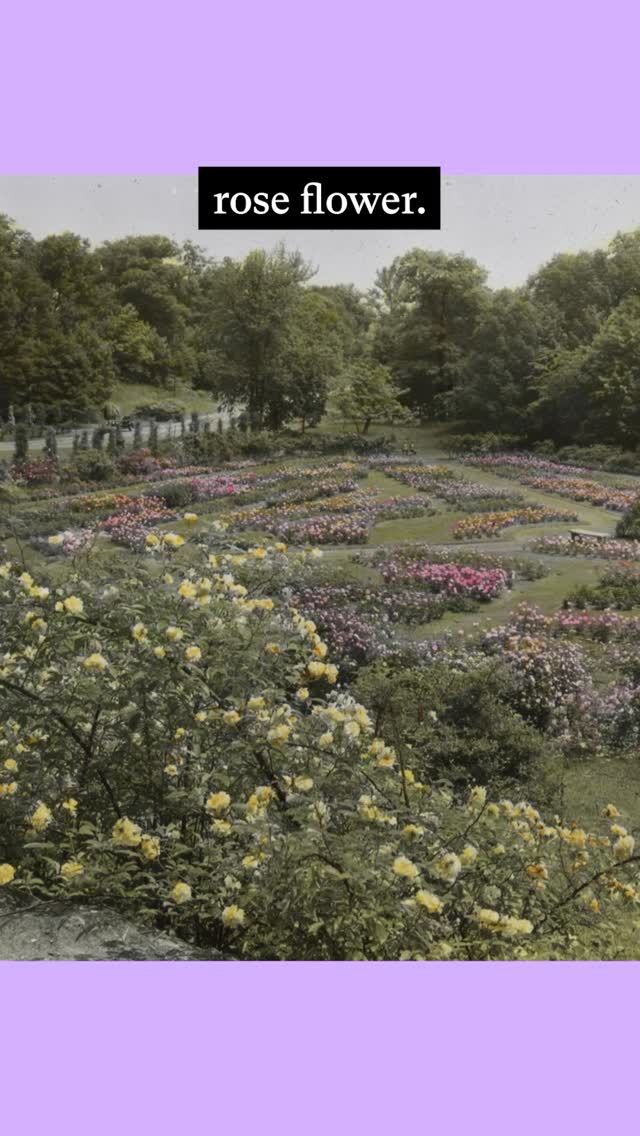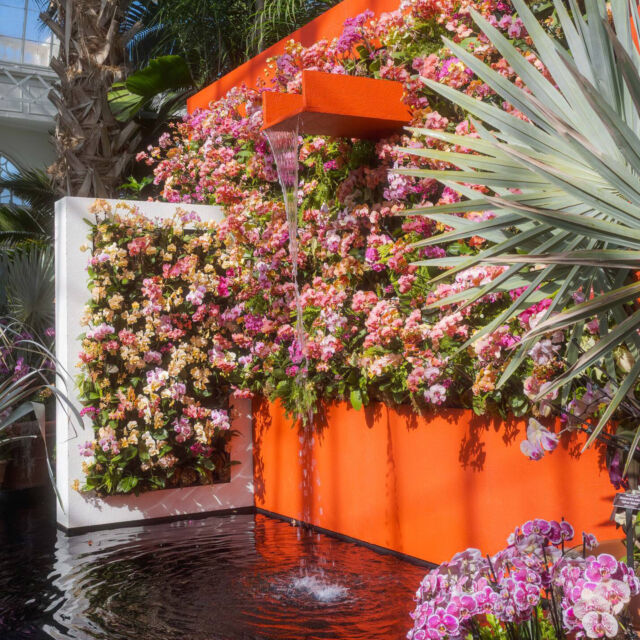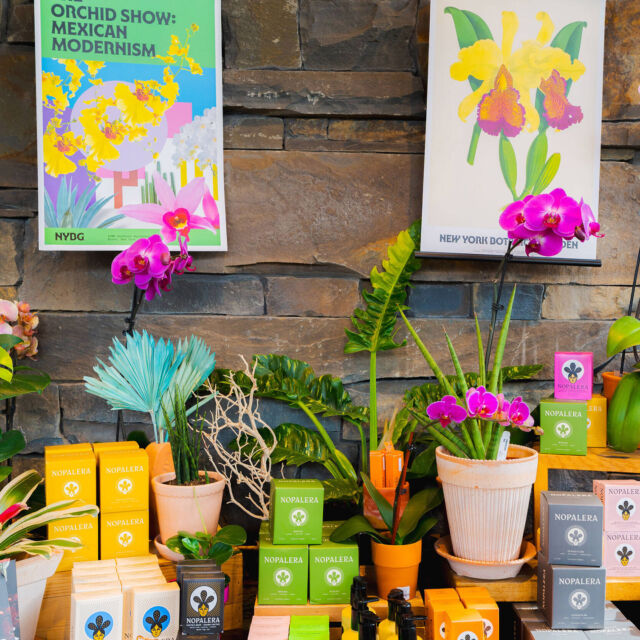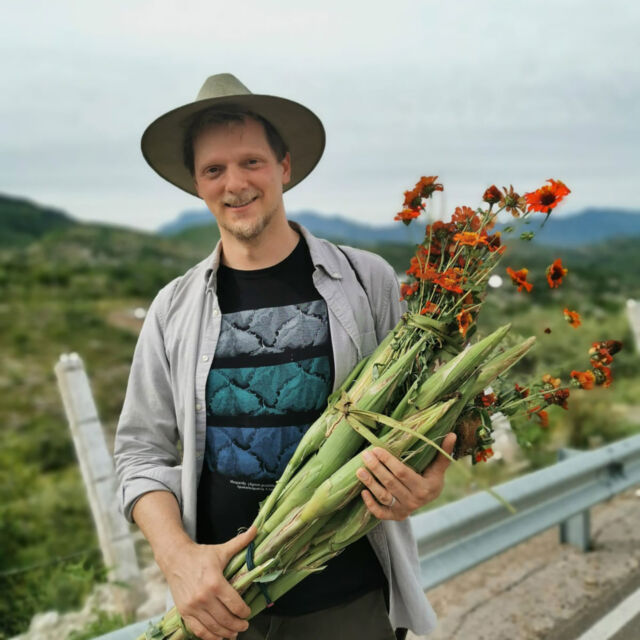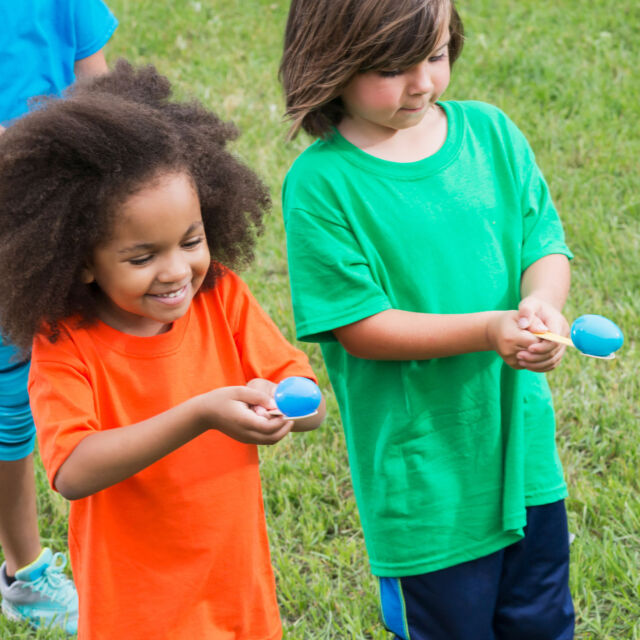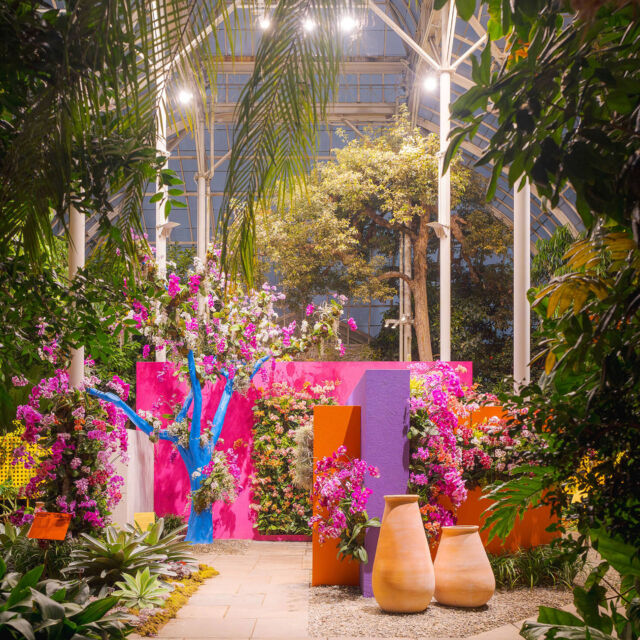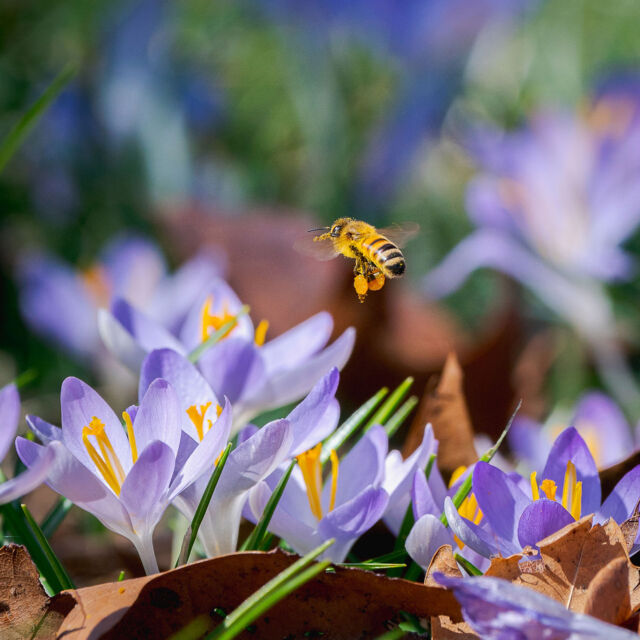NYBG Science: A Year of Global Partnership and Local Action
2024 was a major year for science at NYBG. We made important impacts both locally and globally in furthering the public understanding of plant science and biodiversity conservation efforts.
Impact of Our Science Research & Collections
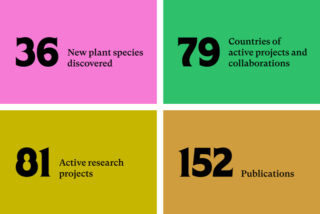
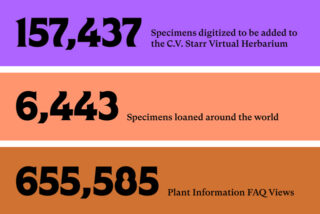
NYBG Engaged with Partners Around the World to Protect and Restore Biodiversity
Our scientists participated in major conferences around the world, which set up collaborative frameworks and implementation strategies to guide global stakeholders and decision makers in addressing biodiversity and climate issues.
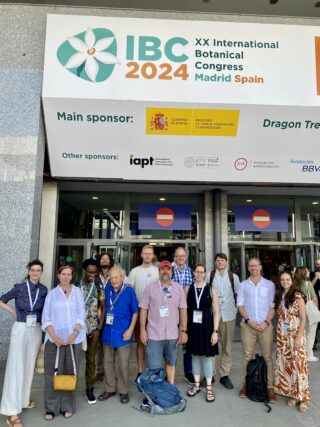
NYBG sent a large delegation of scientists to this year’s International Botanical Congress in Madrid, Spain.
In July, a group of our Scientists visited Madrid for the International Botanical Congress (IBC), the world’s largest plant science conference. Through collaboration, recognition of the importance of local and Indigenous knowledge, and sharing the latest plant science discoveries, the IBC is a way for scientists to better understand how to communicate their findings in new ways, and address the biodiversity crisis. NYBG presented talks, symposia, and workshops, and joined scientists in a final session to create the Madrid Declaration, which calls for action through 10 strategic steps made by plant scientists, botanical institutions, governments, the corporate sector, and civil society. Through outlining these steps and discussing their future, botanists championed democratized data, fostered agreement, and raised awareness about strengthening science diplomacy strategies.
![nariño fieldtrip journalists 10.25.24[100]](https://www.nybg.org/content/uploads/2024/10/Narino_Fieldtrip_journalists_10.25.24100-320x240.jpeg)
Representatives from NYBG, including Dr. Mauricio Diazgranados and President Jennifer Bernstein, speak with press during the #COP16 conference in Cali, Colombia.
NYBG is continuously working toward finding solutions to halt the climate crisis and biodiversity loss—this year, the Garden began working in partnership with Botanic Gardens Conservation International (BGCI) to establish a Climate Resilience Advisory Group through their joint project, Nurturing Nature Through Plant-based Solutions for Long Term Climate Resilience. Together, they will collaborate to build a multi-year and multi-phased Action Plan that centers plants as drivers of climate resilience, and brings botanical gardens together in collaboration to identify effective plant-based means of improving that resilience.
NYBG Science in Action in the Bronx
By utilizing our own people, plants, and place within an urban space, NYBG further expanded its role in plant science. We gathered experts to cover key topics in climate and biodiversity; we used our living collections for insightful projects that deepen our understanding of urban forests in cities; and we leveraged our collections in the Steere Herbarium and Mertz Library to advance the understanding of plant science, both in our borough and beyond.
In October, NYBG participated in Climate Week NYC 2024 through our annual conference, which centered the importance of harnessing biodiversity to improve climate resilience. We were joined by experts from NYBG as well as anthropologist, ethnobotanist, and author Wade Davis for this momentous event, while panels of distinguished scientists and environmental experts touched upon climate resilience and steps toward mitigating biodiversity loss.
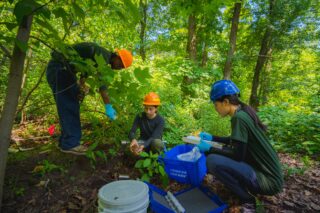
Researchers take part in a study in the Thain Forest to better understand the health of urban woodlands—past, present, and future.
Meanwhile, research in the Thain Family Forest is ongoing, spearheaded by Brad Oberle, an Associate Curator in NYBG Science, and John Zeiger, Manager of the Thain Family Forest. Together with a group of interns, the team is measuring soil health through studying soil carbon inventory, heavy metal contamination, and hydrology. The results of these studies will then be used to understand current threats, historical trends, and future directions for management of the Thain Family Forest—and more broadly, urban forests in the Northeast.
We’ve also implemented important research in Urban Conservation, led by Dr. Eric Sanderson, our Vice President for Urban Conservation Strategy. Through understanding our place in historical ecology, ecological democracy, active restoration, and environmental governance, we can work to preserve and restore native ecosystems that are important in combating climate change and bolstering climate resilience.
Work within the LuEsther T. Mertz Library is ongoing as we collect, sort, preserve, and digitize works of merit in botany, horticulture, and landscape design, most of which is available for the public to explore. In particular, the Mertz Library is continuing to make great strides toward processing and digitizing the Institutional Archives, thanks to a generous $1 million grant from the Leon Levy Foundation. The grant has allowed the Library to hire two archivists and a digital imaging technician to make these unique collections discoverable and accessible. This year, the Mertz Library saw 3,000 reference inquiries, 1,377 new catalog records, and almost 1 million views through our Plant Information digital resources.
This year we embraced burgeoning technological movements through a collaboration with Break Through Tech, an initiative of Cornell Tech that fosters gender equity in the tech industry by preparing women and nonbinary students from diverse backgrounds to pursue tech careers. Through our partnership, we are working to classify a dataset of nearly 123,000 plant images as a public resource, including digitized plant specimen images from the William and Lynda Steere Herbarium.
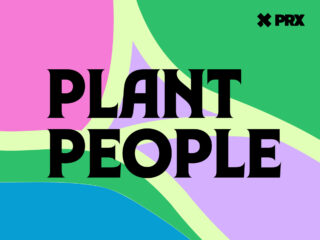
In 2025, NYBG launched its first podcast—Plant People—focused on the ways plants and humanity can coexist for the benefit of all.
And bridging the gap between science at the Garden and beyond, Plant People launched to great fanfare this year—a new podcast from NYBG and PRX Productions featuring NYBG’s CEO & President, Jennifer Bernstein. Across 10 initial episodes with experts on topics ranging from mycology to wildfires, we connected the dots between nature and humanity, particularly in regard to reciprocity with our environment. We are honored that Plant People won the Signal Award for Best New Podcast in 2024, and we’re excited for Season Two to begin in spring of 2025.
As NYBG’s science presence continues to expand not only in our borough but internationally, we look forward to all of the progress that will come in the year ahead—progress that will benefit not only plants, but people, too.
SUBSCRIBE
Enter your email address to subscribe to this blog and receive updates on new posts.
